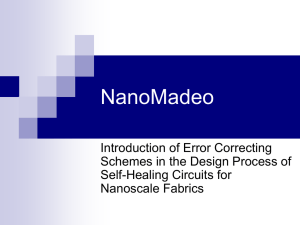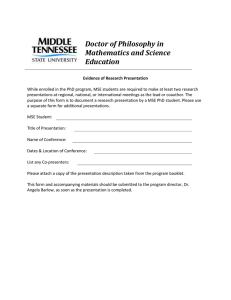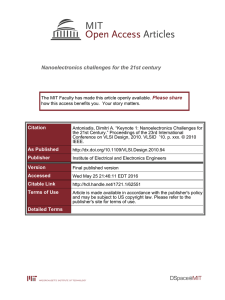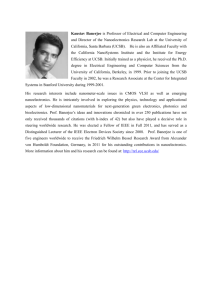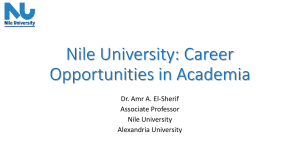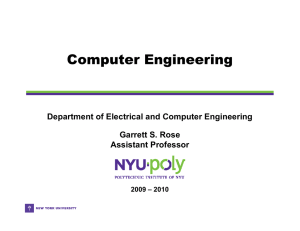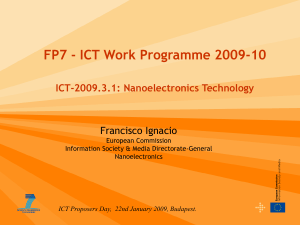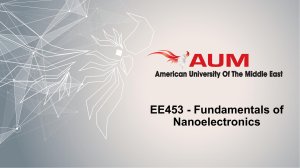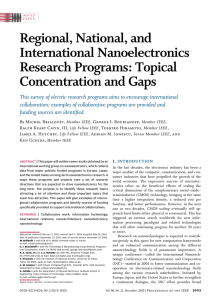MSE 771: The Materials Science of Nanoelectronics Instructors: J.J.
advertisement
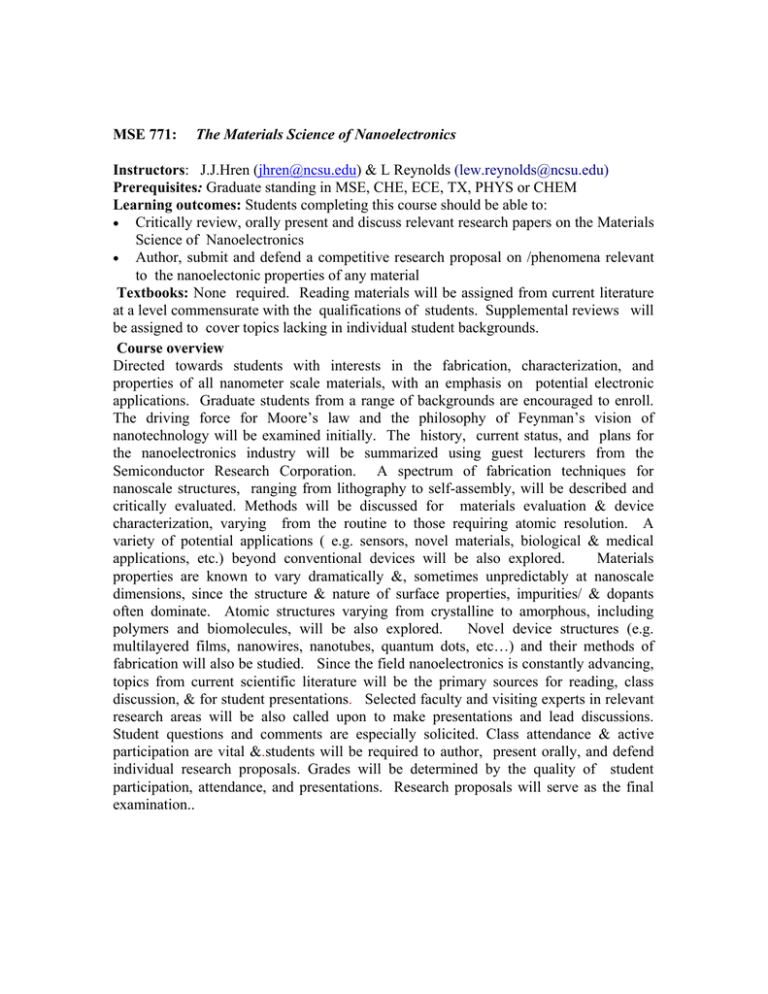
MSE 771: The Materials Science of Nanoelectronics Instructors: J.J.Hren (jhren@ncsu.edu) & L Reynolds (lew.reynolds@ncsu.edu) Prerequisites: Graduate standing in MSE, CHE, ECE, TX, PHYS or CHEM Learning outcomes: Students completing this course should be able to: • Critically review, orally present and discuss relevant research papers on the Materials Science of Nanoelectronics • Author, submit and defend a competitive research proposal on /phenomena relevant to the nanoelectonic properties of any material Textbooks: None required. Reading materials will be assigned from current literature at a level commensurate with the qualifications of students. Supplemental reviews will be assigned to cover topics lacking in individual student backgrounds. Course overview Directed towards students with interests in the fabrication, characterization, and properties of all nanometer scale materials, with an emphasis on potential electronic applications. Graduate students from a range of backgrounds are encouraged to enroll. The driving force for Moore’s law and the philosophy of Feynman’s vision of nanotechnology will be examined initially. The history, current status, and plans for the nanoelectronics industry will be summarized using guest lecturers from the Semiconductor Research Corporation. A spectrum of fabrication techniques for nanoscale structures, ranging from lithography to self-assembly, will be described and critically evaluated. Methods will be discussed for materials evaluation & device characterization, varying from the routine to those requiring atomic resolution. A variety of potential applications ( e.g. sensors, novel materials, biological & medical applications, etc.) beyond conventional devices will be also explored. Materials properties are known to vary dramatically &, sometimes unpredictably at nanoscale dimensions, since the structure & nature of surface properties, impurities/ & dopants often dominate. Atomic structures varying from crystalline to amorphous, including polymers and biomolecules, will be also explored. Novel device structures (e.g. multilayered films, nanowires, nanotubes, quantum dots, etc…) and their methods of fabrication will also be studied. Since the field nanoelectronics is constantly advancing, topics from current scientific literature will be the primary sources for reading, class discussion, & for student presentations. Selected faculty and visiting experts in relevant research areas will be also called upon to make presentations and lead discussions. Student questions and comments are especially solicited. Class attendance & active participation are vital &.students will be required to author, present orally, and defend individual research proposals. Grades will be determined by the quality of student participation, attendance, and presentations. Research proposals will serve as the final examination..
